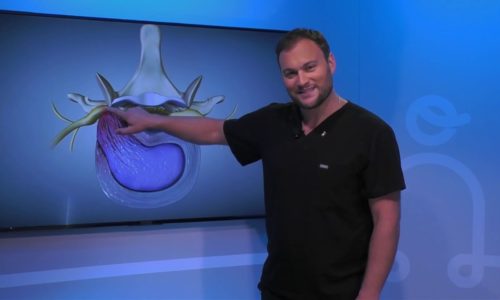Conquering Chronic Pain: Treatments, Tools, and Therapies |

Chronic pain is more than just a physical condition—it can take a toll on your mental health, relationships, and overall quality of life. From aching joints to nerve pain, the challenges of living with chronic pain can feel overwhelming. But there is hope. Dr. Madeline Camejo, Chief Pharmacy Officer at Baptist Health, and Dr. Michelle Krichbaum, Clinical Manager of Pharmacy at Baptist Health, joined host Kathy Buccio to address viewers’ pressing questions about chronic pain and offer practical solutions.
What Is Chronic Pain?
Chronic pain is defined as pain that lasts longer than three months. It can result from various conditions, including arthritis, nerve damage, or gastrointestinal issues. Unlike acute pain, which serves as the body’s alert system, chronic pain persists beyond normal healing times and can impact physical and mental well-being.
Understanding Pain Types and Treatments
Samuel, a viewer, asked why his father, who suffers from diabetic neuropathy, was prescribed Cymbalta, an antidepressant, instead of a traditional painkiller like Vicodin.
Dr. Krichbaum explained, “There are two main types of pain: nociceptive and neuropathic. Neuropathic pain, like diabetic neuropathy, doesn’t respond well to opioids. Cymbalta belongs to a class of drugs called SNRIs, which increase serotonin and norepinephrine levels, helping to regulate nerve pain.”
She emphasized the importance of using the correct medication for the type of pain, noting that Cymbalta effectively reduces the stabbing and burning sensations common in neuropathic pain.
Managing Pain from Chronic Conditions
Ahmed’s question about his mother’s chronic pain from Crohn’s disease highlighted the connection between chronic conditions and pain management.
“Chronic gastrointestinal diseases like Crohn’s can cause both acute flare-ups and long-term pain,” Dr. Camejo said. She advised working closely with a gastroenterologist to address the underlying condition, which could help alleviate chronic pain symptoms.
Non-Prescriptive Therapies for Pain Management
For those hesitant to rely on medications, there are several non-prescriptive options. Dr. Camejo shared some alternatives:
- Osteopathic Manipulative Therapy (OMT): Hands-on manipulation to relieve musculoskeletal pain.
- Acupuncture: Effective for arthritis and cancer-related pain.
- Tai Chi and Yoga: Improve flexibility, balance, and cardiovascular health while reducing pain.
- Chiropractic Care: Beneficial for lower back pain.
- Supplements: Glucosamine and chondroitin may support cartilage health, particularly in arthritis patients.
Addressing Pain and Mental Health
Fibromyalgia sufferer Katherine asked how chronic pain affects mental health. Dr. Krichbaum explained that chronic pain and mental health are deeply interconnected, with pain exacerbating conditions like depression and anxiety.
She recommended working with a pain psychologist and incorporating cognitive behavioral therapy (CBT). “CBT teaches patients to reframe thoughts about pain, develop coping strategies, and reduce the perception of pain severity,” she said.
Lifestyle Changes for Chronic Pain Relief
When Vernon, a migraine sufferer, expressed interest in managing pain through diet and exercise, Dr. Camejo highlighted their benefits:
- Diet: Stick to fresh foods, avoid migraine triggers like MSG and excessive caffeine, and include omega-3-rich foods like salmon.
- Exercise: Regular physical activity releases endorphins that block pain signals and reduce anxiety.
Medications and Supplements
Several questions focused on pain medication options and supplements:
- NSAIDs: Effective but require monitoring for long-term side effects like stomach ulcers or kidney damage.
- Turmeric: Curcumin supplements, rather than raw turmeric, can reduce inflammation but should be taken under medical supervision.
When Pain Feels Psychosomatic
One viewer expressed concern about his brother, who experiences chronic pain without an apparent physical cause. Dr. Krichbaum noted that chronic pain may sometimes have psychosomatic elements but recommended a thorough medical evaluation to rule out underlying conditions.
“Even if the pain is psychosomatic, it’s real and requires treatment, possibly with a psychiatrist or pain psychologist,” she said.
Key Takeaways
Chronic pain is complex and multifaceted, requiring a tailored approach that combines medication, lifestyle changes, and psychological support. Whether you’re managing arthritis, migraines, or fibromyalgia, seeking professional guidance is essential to finding relief and regaining quality of life.
Have Questions? Get Expert Answers
If you’re dealing with chronic pain or have questions about managing it, reach out to the experts at Ask the Doc. Submit your questions to questions@allhealthtv.com, or connect via Facebook or YouTube. Don’t let pain control your life—help is just a question away.








